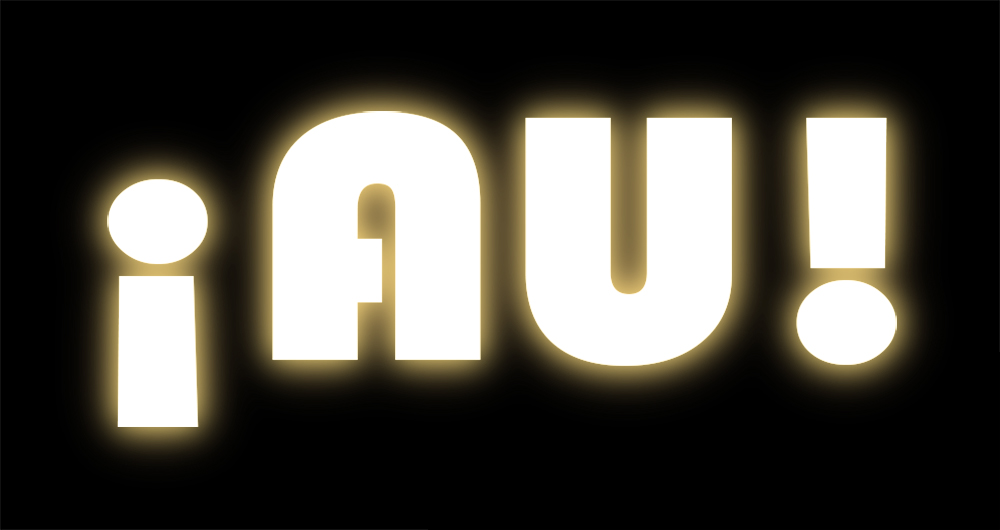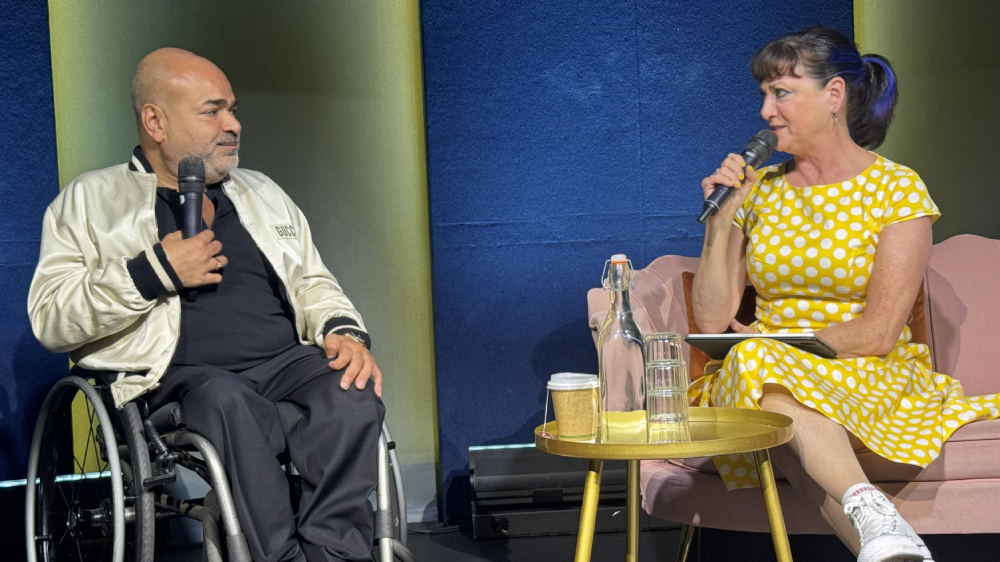London-based networking org Soho Media Club held its annual Be You Festival this week on its home turf at Soho venue Underbelly Boulevard. This year’s theme was “Evolve”, and evolve the film and tv industry must if it’s going to make it out of this decade alive.
The festival is designed to spark honest conversation about the slate of media and entertainment culture, craft and business and, per the Soho Media Club ethos, goes out of its way to highlight and champion talent from diverse backgrounds. Speakers at this year’s event included legendary comedy producer Ash Atalla, comedian Nabil Abdulrashid., and Oscar winning director Rachel Shenton.
The day of panel discussions, keynotes, breakout seminars, and networking packed in much more inspiration and practical takeaway than many “must attend” events in the calendar. Because there weren’t too many big sponsors looking over shoulders, and with a supportive board, the Soho Media Club team are sometimes able to address the real concerns and questions of attendees even when they might be in conflict with perceived wisdom in the industry.
Producer Ash Atalla, in his onstage conversation with MC Muki Kulhan, repeatedly joked that the interview was going to end his career. It was simultaneously heartening and depressing to see a legendary figure in the industry – producer and co-creator of The Office – just as worried about the whims of show commissioners as the rest of us.
Commissioning is broken
Atalla started his career as a stock broker, which he was terrible at. It was clear to him that he was not doing the thing he loved and that he thought he might be good at. He turned his attention to comedy and, with a healthy dose of youthful arrogance under his belt, began to develop a career in comedy. He admitted that he sounded like one of those “back in the old days” guys, but he lamented the lack of lower level productions and opportunities today, which had been so essential to building his career when he started:
“Starting small has become harder. I go in and pitch with very famous actors and they get turned down. For smaller names, it’s really tough.”
The domination of streamers has also introduced a whole new set of business models which has sapped the traditional training grounds for new talent.
“The world of steaming is big, big budgets. Taking a swing on younger voices is not what they do. In this country it’s the BBC and Channel 4. There is a scarcity of incredible talent along with a lack of risk taking…Commissioning is broken in this country. There are not many industries where you go to get work from someone who knows less than you.”
Atalla admitted that there is the eternal question of “do you need to be a good chef to be a good restaurant critic?” Do commissioners need to have created stories themselves in order to decide which stories should be told? His verdict was simple:
“If you went to see a doctor who was 20, you wouldn’t listen to them?”
However, Atalla was one of those young people going into a broadcaster to pitch a dreary experimental comedy called The Office. He suggested that success was the result of unrealistic self-belief, balanced with honest-self appraisal. Sometimes you need to plow ahead no matter what, but sometimes you have to know when to pull the plug.
“Saying no – also to ourselves – is hard. Not everyone can do this, or should do it. There are no qualifications. If you think statistically about how many slots there are – failure is baked into the world of tv and film.”
Was this Ash Atalla’s last interview? Probably not. But he did wrap up with: “This is genuinely a career-ending speech for me. I have to go pitch this afternoon.”
You have to have grit
Along with access to the intimate anxieties of major comedy talents, Be You provided breakout workshops to address real world problems – an introduction to the UK’s Film & Television Charity and mental health access for workers in the industry, a workshop on safeguarding in the workplace, and (to a packed room) an address by LinkedIn staff on how to move your profile up that algorithmic ladder. Top LInkedIn tip: share in detail about your personal life but always make sure it comes back to a business lesson.
Holding your ground and not letting yourself get pushed off balance by an industry that may not know what it’s talking about ended up being the focal point of multiple sessions.
Nabil Abdulrashid’s inspiring story of prison time to award-winning comedy was, again, a story of someone determined to find what they were good at and to make them most of it.
“When I was there, I started to become myself again,” said Abdulrashid of his time as an incarcerated young man. He began to write. “I decided I’m going to try to live life for me. I would go to the prison library.”
Being a Nigerian immigrant in a white British, predominantly English, industry meant developing skills and patience – and most importantly, networks – that would keep him in the game for the long haul. He wouldn’t be given the multiple opportunities to fail that British acts are given, yet he would need them if he was going to build creative muscle.
“It’s not enough to have talent. You have to have grit,” said Abdulrashid. Some of the best advice he received as an up & comer was about patience: “‘You will do it. Just not today or next week.’”
Watch Nabil Abdulrashid’s latest special, The Purple Pill, here:
Something that means something
Rachel Shenton shared a story of following her instincts and leaving her steady job on UK drama Hollyoaks for something that spoke to her deeper creative instincts.
“Having worked so hard to get the job it wasn’t easy to leave. There’s always a feeling in this industry that you should be grateful for anything you get.”
That leap into the unknown was the beginning of a trial by fire.
“I couldn’t get a job. I couldn’t even get an audition. I just want to do something that means something. But you just do the jobs that come along. I thought it couldn’t get any worse.”
A cancer diagnosis soon followed – and with it an awakening. After getting the all-clear, she decided that she would not longer be dependent on others for her personal success. Going to one of her great passions, working with and for deaf people, she wrote, directed, and starred in short film The Silent Child, which won the 2018 Oscar for Best Live Action Short Film.
If this year’s Be You Festival could be distilled into one idea it would be to create your own belonging. The media industry isn’t going to give it to you. You can only give it to yourself. As Shenton put it: “If you’ve got a seat at the table, you deserve to be there.”
Watch The Silent Child here:









